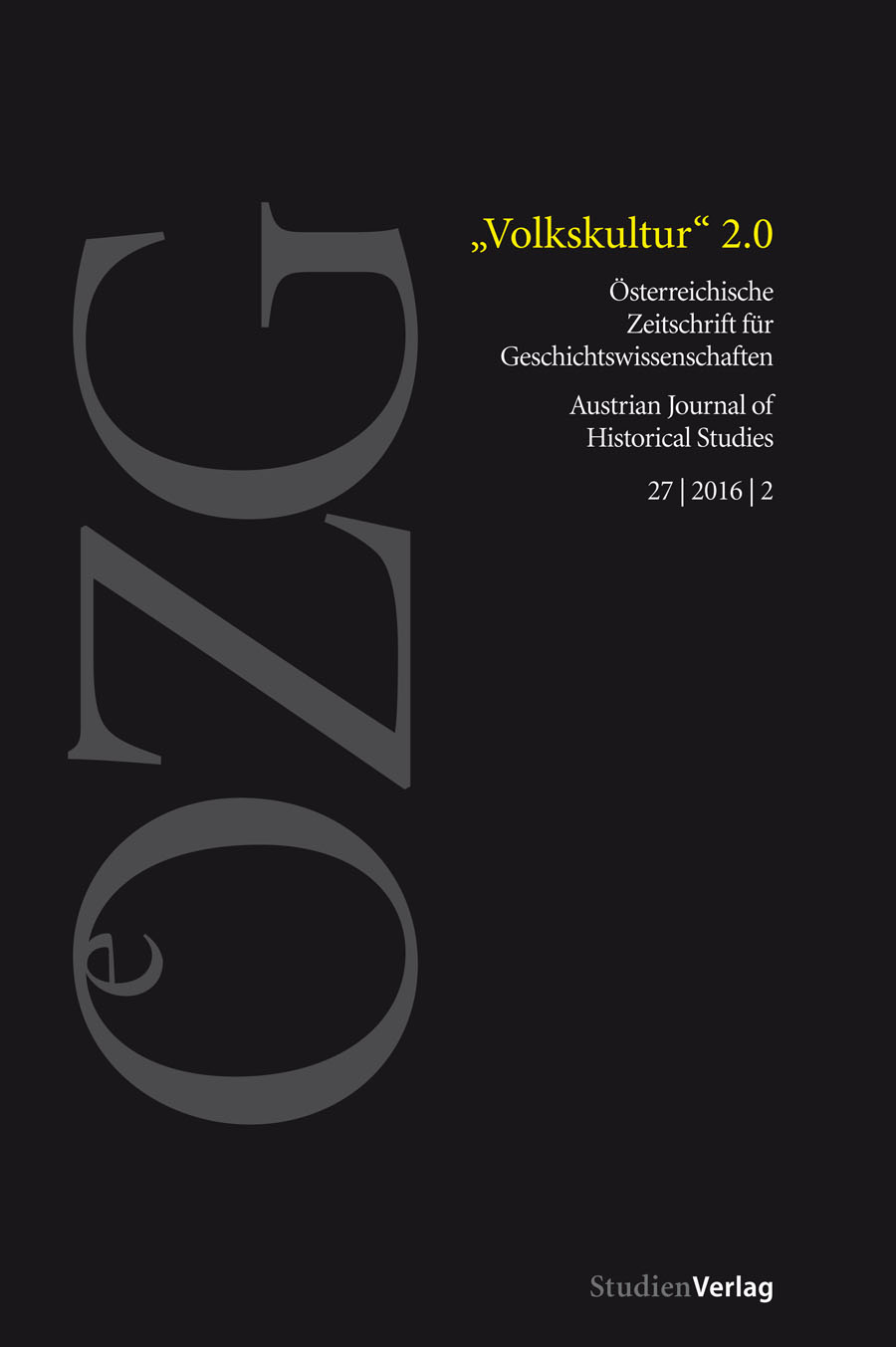Fastnacht in Baden-Wuerttemberg
Folklore Studies and their Impact on the Southwestern German Society in the 1960s
DOI:
https://doi.org/10.25365/oezg-2016-27-2-5Keywords:
folkloristic knowledge, carnival research, valorization of culture, doing Volkskultur, doing societyAbstract
Fastnacht – as carnival is called in southwestern Germany – has experienced a signifcant increase in popularity and creativity since the 1950s. Concurrent with Germany’s economic post-war boom, a great number of new gures and masks were established. Carried by the rising public interest in the subject, in 1961, practitioners of the custom approached the Ludwig-Uhland-Institut für Volkskunde, a renowned department of folklore studies at the University of Tübingen. They initiated a working group consisting both practitioners and scholars to intensify historical research on the Fastnacht festivities and to provide information about the new forms and the regional di usion for practitioners and an interested public alike. Here, folkloristic knowledge was not only asked for and coproduced by social protagonists, but it was also adopted and reframed with a specific idea of a tradition that’s worth being funded. This article shows the entanglement of folklore studies and carnival practice on the basis of two strongly discussed topics in the working group: history and originality of Fastnacht. Furthermore, the article discusses two differing positions concerning the work on the custom and its implications for society.


